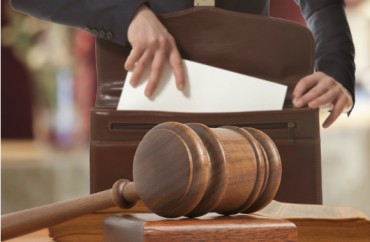
Sometimes when you lose the battle, you win a larger victory.
Critics of the typical college approach to sexual-assault investigations – treating male students as “responsible” while depriving them of basic due process – can take some comfort from a decision by the U.S. District Court in Lexington, Ky.
Male student “John Doe” preemptively sued the University of Kentucky after it put him through two hearings in the 2014-15 school year that were twice overturned by the University Appeals Board, which found gross due-process violations including the “withholding of critical evidence” by the student-conduct director. (The first punishment was a one-year suspension; the second, a five-year suspension.)
When UK tried to put him through a third hearing last fall, Doe filed suit, claiming it would be a repeat of the first two slanted hearings against him and asking for an injunction to stop the school
from conducting the third hearing based on alleged constitutional flaws in the University’s policies and procedures that govern sexual misconduct hearings and asserting due process and equal protection claims under the U.S. Constitution and federal laws … and Title IX of the Education Amendments Act of 1972 …
The school argued that it would give Doe a fair third hearing, including letting him cross-examine his accuser “by submitting questions to the Hearing Officer,” according to the summary by Judge Joseph Hood. But it also said Hood was procedurally precluded from hearing the case.
RELATED: Brandeis branded gay student a rapist for awaking boyfriend with a kiss, suit says
Hood agreed that Supreme Court precedent (1971’s Younger) meant federal courts couldn’t hear any case regarding “state proceedings” that “involve an important state interest” and can give the plaintiff “an adequate opportunity” to raise constitutional claims:
Recently, the Supreme Court confirmed that Younger applies to … state enforcement actions that are “akin to criminal prosecutions” in “important respects.” … These enforcement proceedings are “characteristically initiated to sanction the federal plaintiff, i.e., the party challenging the state action, for some wrongful act.” …
Like the state bar disciplinary hearing in Middlesex and the state-initiated civil rights commission hearing in Dayton Christian Schools [two other related cases], the UK disciplinary hearing involving Doe is akin to a criminal prosecution and resembles the state enforcement actions the Supreme Court has found appropriate for Younger abstention.
Samantha Harris of the Foundation for Individual Rights in Education explains why this is a “good ruling for due process”:
[I]t recognizes that university sexual misconduct proceedings are serious matters with “tangible sanctions” like suspension or expulsion, and that states have an important interest in ensuring those procedures are fair. Indeed, FIRE has been arguing that university sexual assault hearings are “quasi-criminal” proceedings since May 5, 2011—just a month after the Department of Education’s Office for Civil Rights issued its controversial “Dear Colleague” letter.
As Harris notes, Hood’s ruling heavily relied on UK offering many of the trappings of a criminal prosecution in its hearing process, so it’s up in the air whether a university that used a “single investigator” model would be judged the same as UK :
I hope the answer to that question would be yes—certainly, a university should not be able to escape the moral obligations that accompany trying someone for a serious offense like sexual assault simply by making its procedures less like an actual criminal proceeding and more like a kangaroo court.
College officials are fond of describing these rape investigations – into claims that are criminal in nature by any definition – as “educational” experiences that are intended to teach a “responsible” (i.e., guilty) student how to live in society.
Their practical effect, of course, is to forever haunt the students victimized by these kangaroo courts, keep them from pursuing their desired education and career, and encourage ex-lovers, rebuffed partners and just plain crazy students to make wild, unsupported rape allegations against male students – gay or straight – because they will be taken as gospel by amateur adjudicators.
Let’s hope Hood’s ruling has a cascading effect down to other courts, who will then make clear to lawless administrators that they are obligated to run a fair proceeding regardless of the accused student’s gender.
RELATED: Risk management guru: Don’t use judges for college rape cases so you won’t get sued later
Like The College Fix on Facebook / Follow us on Twitter
IMAGE: Shutterstock







Please join the conversation about our stories on Facebook, Twitter, Instagram, Reddit, MeWe, Rumble, Gab, Minds and Gettr.